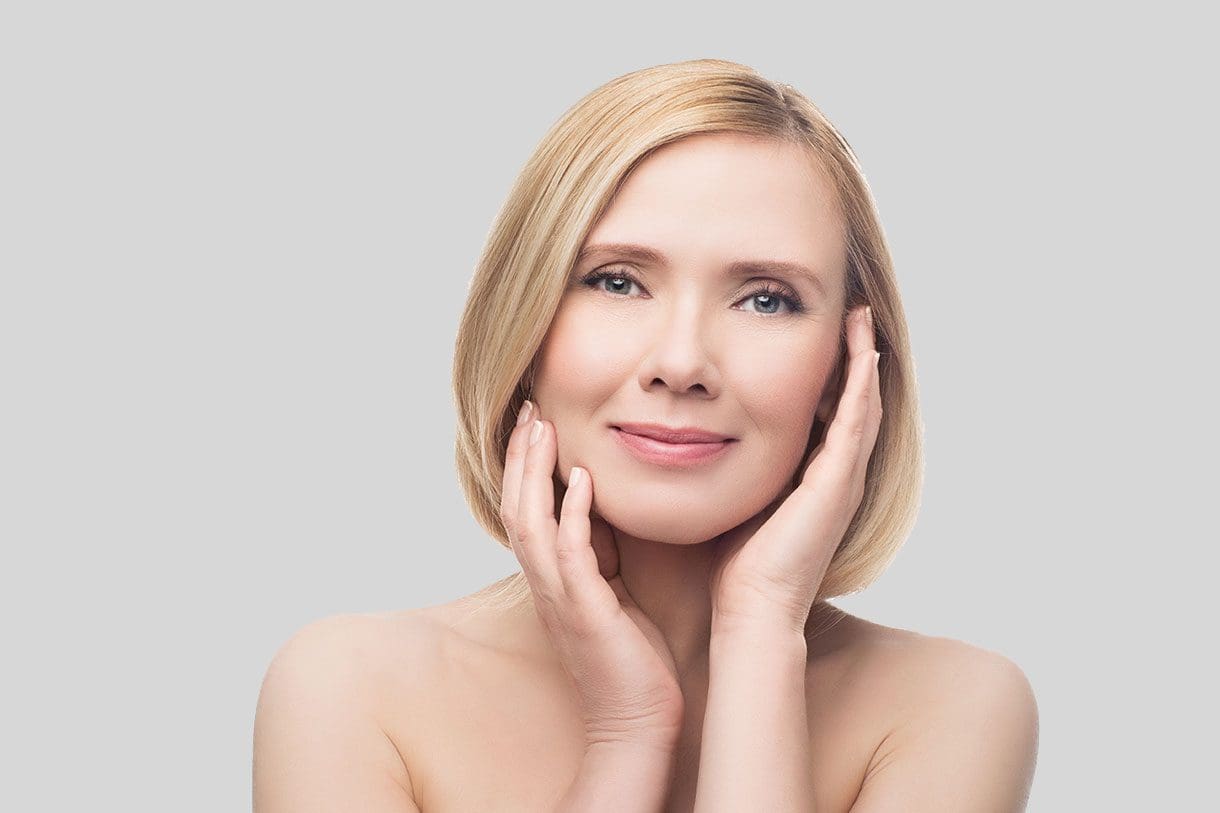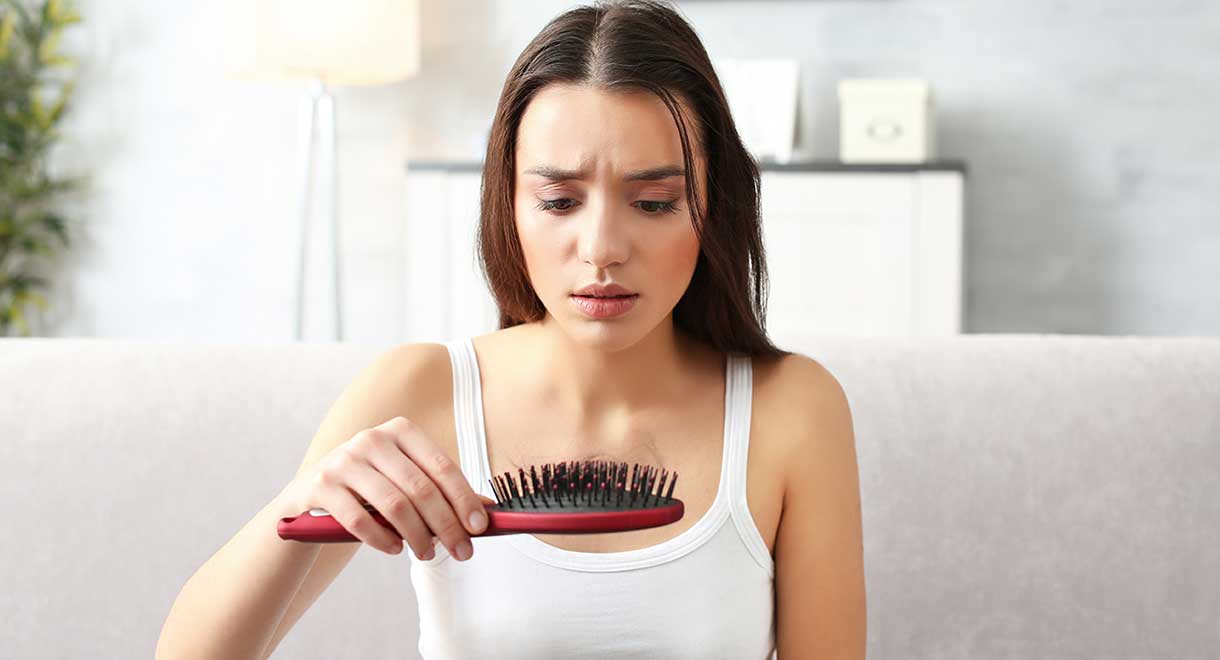Hair loss in women can be helped
By Marilyn Searle, Trichologist
The condition of your hair speaks volumes about your general state of health. Healthy, shiny and lustrous hair is a reflection of vibrant health; whereas dry, brittle and thinning hair can signal hidden health problems.
Having beautiful hair involves more than your daily beauty routine; it is more a reflection of your everyday lifestyle. No matter what type of hair your chromosomes have blessed you with, there are a number of solutions to get your hair in top condition. We have got to make the best of what we have got!
The quality of your hair is affected by many things. Busy lifestyles, fad dieting, gastrointestinal disorders, and poor eating habits, can leave many people deficient in a number of hair nutrients. Healthy hair requires a good supply of protein, the minerals iodine, iron, silica, sulphur, vitamin C and essential fatty acids. These specific nutrients improve the strength of the hair and make it less breakable and less likely to fall out.
What are the causes of hair loss and unhealthy hair?
We see a lot of patients who complain of hair loss and it can be very difficult to treat successfully, unless we understand and address the causes of hair loss.
Hair loss in women can be caused by hormonal imbalances such as –
- Lack of progesterone production by the ovaries – this is common in women with polycystic ovarian syndrome, gynaecological problems and after childbirth.
- Menopause – when the production of oestrogen and progesterone decline rapidly.
- Excess male hormones, which can be due to genetic factors, obesity or polycystic ovarian syndrome
- The oral contraceptive pill and contraceptive hormone implants and injections
- Thyroid gland problems – both overactive and underactive
Not many doctors know that hair loss in women can be helped by prescribing natural progesterone. This is best given in the form of a cream and doses range from 30 to 200 mg daily, so some trial and error is required. Natural progesterone is very safe and its beneficial effect on hair growth will show after 3 to 4 months of use.
Excess male hormones cause male-pattern hair loss or balding in women – the hair thins in the frontal-temporal areas and the top of the scalp. In such cases blood tests may reveal very high levels of male hormones (androgens) for which it will be necessary to use a hormone to suppress and block the effect of these male hormones. An excellent prescription hormone to block the excess male hormones is called Cyproterone acetate – this is an anti-male hormone and also exerts progestogen like effects.
Thyroid problems will need to be treated with thyroid hormone (either thyroxine, known as T4, or thyroxine and triiodothyronine, also known as T3, or natural porcine thyroid extract). Iodine, selenium and zinc will help to support optimal thyroid function and thus improve the condition of the hair. If you have hair loss, have a urine test to check your body’s level of iodine – if it is too low this is a contributing factor to your sluggish thyroid and thus your hair loss.
Immune factors are also important in the genesis of hair loss and can cause diffuse hair loss or patches of baldness known as alopecia areata. This is an autoimmune condition whereby the immune system attacks the hair follicles. The hair follicles become inflamed and damaged and may eventually be destroyed. When patches of complete hair loss occur, this is called alopecia areata– it can vary in severity from one patch to total baldness and the hair loss can affect the whole body.
In autoimmune hair loss, eating gluten-containing foods can worsen the condition, therefore gluten should be eliminated from the diet.
Some prescription medications can increase the rate of hair loss. These include blood thinners, cholesterol-lowering drugs, and some drugs used to treat high blood pressure, gout, arthritis, depression and heart problems.
Nutritional deficiencies are a common cause of hair loss and can occur in women taking antacid drugs or those with gastrointestinal problems causing poor absorption.
Chronic diseases such as kidney disease can cause hair loss.
Some hair care products, styling methods and unconscious habits like pulling or twisting the hair can lead to hair loss.
Other things that cause hair loss include stress and chemotherapy used to treat cancer or transplant rejection drugs.
Nutritional medicine for hair loss
It is vital to use natural anti-inflammatory nutrients to protect the hair follicles and these include –


Essential fatty acids
Essential fatty acids from oily fish, fish oil, avocados, hemp seeds, hemp oil, chia seeds and ground flaxseeds – these are not only anti-inflammatory but also make the hair more lustrous and shiny and help to heal a dry itchy scalp.


Collagen Food powder
This unique Collagen Food product contains MSM (Methyl-Sulphonyl–Methane), Vitamin C and silica; these nutrients provide the raw materials for collagen and keratin production. Collagen and keratin are a vital part of the hair structure and enable hair to be strong and healthy.


Coconut oil
Coconut oil is an excellent addition to your diet because of the short and medium chain triglycerides it contains; they can boost your metabolism and enhance your immune system. Coconut oil also makes a good massage oil for your scalp. Warm the oil and gently massage a teaspoon into your scalp with your fingertips. Leave it on for at least an hour or overnight and then shampoo it out of your hair. This is an excellent treatment for dry hair and a scalp massage is a great way to improve blood flow to your scalp.


Raw vegetable juices
Raw vegetables contain a plethora of living active enzymes, vitamins, minerals, antioxidants and phyto-nutrients. The pigments in vegetables and fruits act as powerful antioxidants; that’s why it is important to eat a wide variety of different coloured vegetables each day. Juicing vegetables makes their nutrients more concentrated and available, as they require very little digestive effort. If you are a busy person you can make all the juice you need for the whole week and freeze it in individual containers to provide a daily supply of raw juice. Freshly made juice if frozen immediately, will retain all its healthy vitality and activity.
More holistic tips for healthy hair
- Drink approximately two litres of pure water each day.
- Exercise will improve your blood circulation and the flow of nutrients to your scalp. Tight neck and shoulder muscles inhibit blood flow to the scalp; regular exercise, stretching these muscles and massage can counteract this.
- Limit your intake of alcohol, caffeine and sugar.
- Avoid hydrogenated vegetable oil and trans fatty acids. The healthiest vegetable oils are extra virgin olive oil, cold pressed hemp seed oil, cold pressed macadamia oil and organic cold pressed coconut oil. Other vegetable oils should be avoided.
- Avoid smoking cigarettes.
- Silica is needed for the structure of hair, skin and nails. Good sources of silica are whole grains, especially oats and most vegetables. Silica is also found in Collagen Food powder.
- Don’t wash your hair each day and avoid the excessive use of styling products. This can have a very drying effect.
Help for thinning hair
Some women have a problem with thinning hair; this is especially common during and after menopause, after a hysterectomy, after child birth, and as a result of some hormonal disturbances. Your weight will also influence hair loss – if you are overweight, especially in the upper body and abdomen, you are far more likely to overproduce male hormones. Excess male hormones will cause thinning of the hair on the top and sides of the scalp; this is known as male pattern hair loss.
Tests for hair loss
- Have your thyroid hormones checked with a simple blood test which is very accurate. Your thyroid hormone tablets may not be working as well as they should and this can only be determined with special blood tests such as Free T3 and reverse T3.
- Have your levels of male hormones (androgens) checked with a blood test. High levels of free male hormones (called Free and Total Testosterone and the Free Androgen Index) can be high in women with hair loss.
- Check your progesterone levels. Progesterone may be deficient in women after childbirth, during menopause and in polycystic ovarian syndrome.
- Check your FSH levels for menopause.
- Test your blood level of vitamin D, as this vitamin (in reality vitamin D is a hormone) has a beneficial influence on the immune system and reduces autoimmune inflammation. You want your blood vitamin D level to be at the upper limit of the normal range to reduce the autoimmune type of hair loss.
- Urinary iodine concentration – this should be over 100.
- Tests for autoimmune diseases such as CRP, ANF and ANA
To learn about effective treatments for hair loss and thinning hair caused by hormonal problems, see the excellent book HORMONES – Don’t let them ruin your Life.
What is trichology and what does a trichologist do?
The trichology profession began in the United Kingdom in 1902 and has spread worldwide since then. A Trichologist is a specialist of the scalp and hair both in health and disease states. Trichologists practise privately much like doctors, physiotherapists and Herbalists etc.
Common problems we see –
- Alopecia areata and alopecia totalis
- Hormonal hair loss
- Hair thinning
- Itchy and flaky scalp conditions
- Eczema and psoriasis of the scalp
- Dandruff
- Hair damage
- Head lice
- Post chemotherapy treatment and advice
Trichologists are not restricted to using one form of treatment; we have the flexibility to choose what is best for our patient; this may involve conventional and/or complementary medicine.









Leave A Comment